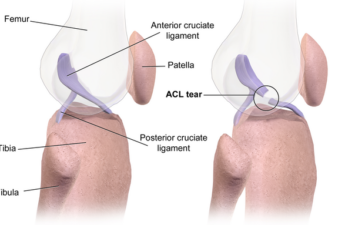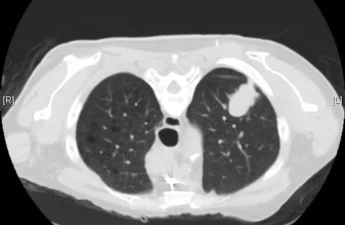Category: Women’s Health
Eating disorders are deadly: What are they, who’s at risk, and what can be done about it
Adolescence is also when eating disorders have the greatest negative effects on health. Five per cent of the general population in North America will suffer from an eating disorder in their lifetime, but few people seek treatment. The prevalence of eating disorders and struggles to access help highlight the need to increase awareness and decrease stigma.
Federal Study Calls U.S. Stillbirth Rate “Unacceptably High” and Recommends Action
Although many people, including some medical providers, believe that stillbirths are inevitable, research shows that as many as 1 in 4 may be preventable.
Is menopause making me put on weight? No, but it’s complicated
When it comes to menopause and weight, it’s weight redistribution – not weight gain – that is actually a symptom. Research has confirmed menopause is linked to an increase in belly fat but not an increase in overall weight.
Pregnancy nose isn’t the only weird change your body may go through when you’re expecting
There are certain changes people expect to experience when they get pregnant. Whether that’s unconventional food cravings, a “glowing” complexion or morning sickness. But some of the changes the body goes through during pregnancy can be a tad more unconventional.
Texas Abortion Ruling Nears, But Blue States Aren’t Waiting to Protect Pill Access
A federal judge in Texas soon could make one of the two pills used in medication abortions harder to come by, even in blue states that support abortion rights. Officials and advocates in those states aren’t waiting for the judge to rule. They’re trying to ensure continued access to the drugs that a growing number of Americans are using to end their pregnancies at home.
Sexual and reproductive telehealth services now available in Washington state.
Available telehealth services include birth control refills, pregnancy options counseling, emergency contraceptives, and screenings for sexually transmitted infections.
Surprise-Billing Law Loophole: When ‘Out of Network’ Doesn’t Quite Mean Out of Network
Referred to Swedish Maternal & Fetal Specialty Center – First Hill for pregnancy complications, Danielle Laskey, a registered nurse, was surprised with a $120,000 hospital bill.
80% of pregnancy-related deaths in Washington state were preventable, study
Behavioral health conditions, including suicide and overdose, remain the leading causes of pregnancy-related deaths. Other common causes were hemorrhage and infection.
Female football players are at much higher risk of career-ending ACL injuries – the science on why
Females have a wider pelvis relative to leg length, which results in increased angulation at the knee. The shape of the bones is also different in women in that the ACL passes through a narrower space to attach to the thigh bone, which may make it more susceptible to injury. The actual size of the ACL is also often smaller in females, so may be less able to withstand high forces.
Medication abortion could get harder to obtain – or easier: There’s a new wave of post-Dobbs lawsuits on abortion pills
Medication abortion now accounts for more than half of all abortions in the United States, but there are a raft of new legal battles that may expand or limit access.
Lung cancer rates have risen among nonsmokers and young women — why?
The American Lung Association reports that while lung cancer rates have risen by 79% for women over the last 44 years, they decreased by 43% for men. And for the first time in history, there are more young women than men diagnosed with lung cancer.
Websites Selling Abortion Pills Are Sharing Sensitive Data With Google
Online pharmacies that sell abortion pills are sharing sensitive data with Google and other third parties, which may allow law enforcement to prosecute those who use the medications to end their pregnancies, a ProPublica analysis has found.
US birth rates are at record lows – even though the number of kids most Americans say they want has held steady
Birth rates are falling in the U.S.and are now close to the lowest level in a century. Is this decline because, as some suggest, young people aren’t interested in having children? Or are people facing increasing barriers to becoming parents?
Washington’s homelessness challenge focus of Inslee’s State of the State address
“When there’s not enough housing for all, rents and prices skyrocket beyond what many can afford,” Inslee said. “An until we fix our housing crisis, thousands of people will remain homeless.”
Most long COVID cases had mild initial infections, UW study finds
Study found that a staggering 90% of people living with long COVID initially experienced only mild illness with COVID-19. After developing long COVID, however, the typical person experienced symptoms including fatigue, shortness of breath and cognitive problems such as brain fog – or a combination of these – that affected daily functioning. These symptoms had an impact on health as severe as the long-term effects of traumatic brain injury. Our study also found that women have twice the risk of men and four times the risk of children for developing long COVID.













